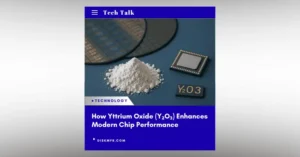RAM and CPU are integral components of any computer system, each with a crucial role to play. While the CPU handles processing tasks, the RAM stores and provides quick access to data. In this article, we will explore the relationship between RAM speed and CPU speed, understanding how they interact and affect overall system performance.
Introduction
When it comes to computer performance, users often wonder if the speed of their RAM limits the speed of their CPU. RAM, or Random Access Memory, is responsible for temporarily storing data that the CPU needs to access quickly. On the other hand, the CPU, or Central Processing Unit, carries out instructions and processes calculations. To understand their relationship, we need to delve deeper into their functions and the impact of their speeds on overall performance.
Understanding RAM and CPU
RAM acts as a middle ground between the CPU and the storage devices, such as hard drives or solid-state drives (SSDs). When a program or application is running, it loads data from the storage devices into RAM, allowing the CPU to access it swiftly. This fast access helps in reducing bottlenecks and ensures smooth operations.
The CPU, often referred to as the brain of the computer, executes instructions and performs calculations. It operates at a specific clock speed, measured in GHz (gigahertz), which determines the number of tasks it can process per second. Higher clock speeds generally indicate faster processing capabilities.
The Relationship Between RAM and CPU
The relationship between RAM and CPU is a crucial aspect of computer performance that warrants exploration. By understanding how these components interact, you can unlock the full potential of your system. In this section, we will delve into the intricate relationship between RAM and CPU, shedding light on their collaborative efforts.
RAM and CPU work in tandem to handle the demands of running applications and processes on your computer. While they have distinct roles, their performance can directly impact each other. Think of them as partners in crime, working together to deliver seamless computing experiences.
RAM acts as a bridge between the CPU and storage devices, such as hard drives or SSDs. When a program is running, it loads data from the storage devices into RAM, enabling quick access for the CPU. This seamless transfer of data ensures that the CPU can perform its tasks efficiently, without being bogged down by slow data retrieval.
The CPU, often referred to as the brain of your computer, executes instructions and carries out complex calculations. It relies on the RAM to provide the necessary data for processing. As such, the speed at which the RAM can deliver data to the CPU becomes a critical factor in overall system performance.
To put it simply, the CPU’s speed is dependent on the RAM’s ability to swiftly supply it with data. When the RAM operates at a higher speed, it can provide data to the CPU more quickly, resulting in smoother and faster task execution. Conversely, if the RAM speed lags, the CPU may experience delays and performance bottlenecks.
Ensuring a harmonious relationship between RAM and CPU is essential for optimal performance. It is crucial to match the RAM speed to the capabilities of your CPU. If the RAM speed is too slow compared to the CPU speed, it can hinder the CPU’s ability to perform at its maximum capacity. On the other hand, if the RAM speed surpasses the CPU’s capabilities, it may not be fully utilized, rendering the higher RAM speed ineffective.
By finding the sweet spot where the RAM speed complements the CPU’s capabilities, you can achieve a balanced system that maximizes performance. This balance ensures that neither component becomes a bottleneck, allowing your system to operate smoothly and efficiently.
In the next sections, we will explore the impact of RAM speed on CPU performance in more detail. We will also dive into the realm of overclocking, discussing its potential benefits and considerations. So, stay tuned as we unravel the intricate relationship between RAM and CPU, empowering you to make informed decisions to optimize your system’s performance.
RAM Speed and CPU Performance
The speed of RAM can have an impact on CPU performance. When the CPU needs to access data from RAM, it is dependent on the speed at which the RAM can deliver that data. Faster RAM speeds can provide data to the CPU more quickly, reducing potential delays and allowing the CPU to process tasks efficiently.
The Importance of Matching RAM Speed to CPU Speed
It is crucial to match the RAM speed with the CPU speed for optimal performance. If the RAM speed is slower than the CPU speed, it may not be able to provide data to the CPU at the rate it requires, resulting in a bottleneck. On the other hand, if the RAM speed exceeds the CPU speed, the CPU may not be able to fully utilize the RAM’s capabilities, leading to underutilization.
Overclocking RAM and CPU
Overclocking is a practice where users increase the clock speeds of their components beyond their default settings to achieve higher performance. Overclocking can be done for both RAM and CPU, but it requires caution and proper cooling to avoid stability issues.
Exploring Overclocking
Overclocking RAM involves increasing its clock speed, which allows it to provide data to the CPU at a faster rate. Similarly, overclocking the CPU involves pushing its clock speed beyond the manufacturer’s specifications. This practice can potentially improve system performance, but it also comes with certain risks and considerations.
Overclocking RAM and Its Effect on CPU Speed
When you overclock your RAM, it can result in a slight improvement in CPU speed. By providing data to the CPU more quickly, overclocked RAM reduces potential bottlenecks and allows the CPU to process tasks at a higher rate. However, it’s important to note that the extent of the improvement may vary depending on the specific hardware and other system factors.
Bottlenecking and System Balance
To understand the impact of RAM speed on CPU speed, it’s crucial to consider the concept of bottlenecking. Bottlenecking occurs when one component of the system becomes a limiting factor in overall performance. In the case of RAM and CPU, if the RAM speed is significantly slower than the CPU speed, it can create a bottleneck, preventing the CPU from performing at its full potential.
Finding the right balance between RAM and CPU speeds is essential for optimal system performance. Ideally, both components should complement each other to avoid any significant bottlenecks. It’s important to assess the capabilities and limitations of your hardware and make informed decisions when upgrading or overclocking.
Practical Considerations for RAM and CPU Speed
While RAM speed plays a role in CPU performance, it’s important to understand that real-world performance is not solely determined by theoretical limits. Other factors, such as the nature of the workload, the efficiency of software optimization, and the overall system configuration, also contribute to overall performance.
Additionally, focusing solely on RAM and CPU speeds might overlook other critical aspects that impact system performance. Factors like disk speed, graphics processing, and software optimization can significantly affect the overall user experience.
Conclusion
In conclusion, RAM speed can have an impact on CPU speed and overall system performance. Faster RAM speeds can help reduce potential bottlenecks and enable the CPU to process tasks more efficiently. However, it is crucial to find the right balance between RAM and CPU speeds and consider other factors that contribute to overall performance.
By understanding the relationship between RAM and CPU and making informed decisions regarding their speeds and configurations, users can optimize their system’s performance for their specific needs.
Frequently Asked Questions (FAQs)
Q1: Does increasing RAM speed always improve CPU performance?
A1: Increasing RAM speed can potentially improve CPU performance by reducing bottlenecks and enabling faster data access. However, the extent of improvement may vary depending on other system factors.
Q2: Can overclocking RAM damage the CPU?
A2: While overclocking RAM itself is unlikely to damage the CPU, improper overclocking practices or inadequate cooling can cause stability issues and potentially affect the overall system.
Q3: Should I prioritize RAM speed or CPU speed when building a system?
A3: Both RAM speed and CPU speed are important factors to consider when building a system. It’s crucial to find a balance between the two components and consider other system requirements based on your specific needs.
Q4: Can mismatched RAM and CPU speeds cause compatibility issues?
A4: In most cases, modern systems can handle varying RAM and CPU speeds. However, mismatched speeds may result in suboptimal performance due to potential bottlenecks.
Q5: How can I determine the optimal RAM and CPU speeds for my system?
A5: Determining the optimal RAM and CPU speeds for your system depends on factors such as the intended use, budget, and specific hardware. Researching benchmarks and seeking expert advice can help you make informed decisions.
Related Reading:
- RTX 5060 Ti Performance Test: 1080P vs 1440P vs 4K
- AI Chips 101: Understanding Latency in Computing
- Does CPU clock speed Define Its Real Power? Find Out
- Radeon 880M vs RTX 3050 Desktop: Performance Breakdown
- How Strong Is Core i5 9400F with RTX 2060 SUPER in 2025?
- The Shift Away from Upgradeable Laptop CPUs: Why?
- Why Calculators Choose Not to Rely on Computer CPUs
- RAM vs SSD: Performance and Storage Showdown
- Core i7 4790K vs i3 14100F: Which CPU is Better for Gaming?
- Upgrade Your PC: Best Value CPUs in October 2023
- Find Out Intel’s Match for AMD’s 5600X CPU Here!
- HD Graphics 630: Latest Gaming Performance Revealed
- Beyond GPU Hype: The Critical Role of CPUs in AI Success
- End of an Era: The Zilog Z80 Bows Out After 48 Years
- DDR5-5600 vs DDR5-6400: Game Performance Compared!
- AMD vs Intel: How CPU Cache Impacts Gaming Performance
- Win10 22H2 vs Win11 23H2: Gaming Performance Comparison
- High CPU Idle Rates: Why not support GPU for Better Gaming?

Disclaimer:
- This channel does not make any representations or warranties regarding the availability, accuracy, timeliness, effectiveness, or completeness of any information posted. It hereby disclaims any liability or consequences arising from the use of the information.
- This channel is non-commercial and non-profit. The re-posted content does not signify endorsement of its views or responsibility for its authenticity. It does not intend to constitute any other guidance. This channel is not liable for any inaccuracies or errors in the re-posted or published information, directly or indirectly.
- Some data, materials, text, images, etc., used in this channel are sourced from the internet, and all reposts are duly credited to their sources. If you discover any work that infringes on your intellectual property rights or personal legal interests, please contact us, and we will promptly modify or remove it.








